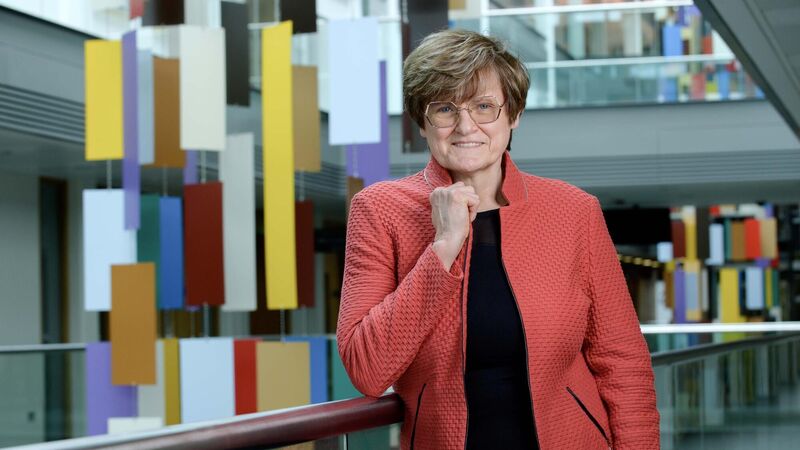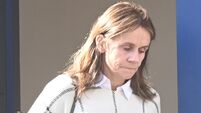Meet the woman whose pioneering research led to the creation of covid vaccines

Katalin Karikó at University College Cork, where she was awarded an honorary doctorate for her outstanding contributions to science and public health. Picture: Daragh McSweeney/Provision.
The Nobel Prize in medicine has been awarded to Katalin Kariko and Drew Weissman for discoveries that enabled the development of effective mRNA vaccines against covid-19.
She’s been described as the woman who shielded the world from covid, whose work saved millions of lives, protected billions more, and helped turn the tide of the pandemic, but for Dr Karikó, whose pioneering research led to the creation of covid vaccines, it’s all about the science.











